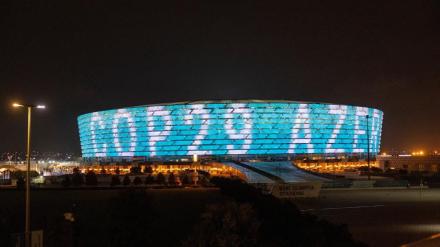The kindest way to describe the 29th Conference of the Parties (COP29) summit’s adoption of a $300 billion-a-year global finance target till 2035 is that it does keep climate talks alive by laying the first-ever international foundation on which the world could hope to construct a system of financing poor countries’ transition away from fossil fuels. The fact that this came despite a looming obstacle, the incoming presidency of Donald Trump, is a positive development. It’s well known that even the most optimistic observers didn’t have any hope of any deal in Baku, but it did happen after negotiations that frequently teetered on the very edge of collapse. In that sense, the Baku summit is the beginning of a long-drawn process. COP29 also agreed on the much awaited carbon credit deal that is expected to facilitate the setting up of a carbon market in India.
Beyond this, however, the event didn’t achieve anything to help poorer nations cope with impacts of climate change. It’s obvious that rich countries still need convincing that giving money to poorer nations is very much in their interests too. The agreed amount comes nowhere close to what’s needed. Besides, the agreement’s lack of ambition and muddled scope — it does not even cover loss and damage — will make sure that the deal remains just on paper. An analysis done by news agency Reuters puts the stand of the developed countries in perspective. For example, in 2023, governments around the globe spent $6.7 billion a day on military expenditure, according to the Stockholm International Peace Research Institute. That means the $300 billion annual climate finance target equates to 45 days of global military spending.
It is evident the climate crisis has slipped down the agenda of many world leaders. The agreement also falls woefully short of the $1.3 trillion developing countries were pushing for. The reaction from the intended recipients is thus wholly understandable. While the African Group of Negotiators described the final pledge as “too little, too late”, India dismissed the money as an optical illusion. The Indian delegation was surely voicing the opinion of many in the developing world when they expressed their “extreme disappointment”’ over the abrupt passage of the agreement. India has categorically said the agreement was stage-managed and the country can’t accept it. The broadside was followed by objections from Bolivia, Chile, and Nigeria. Many developing nations emphasised the smaller-than-hoped finance commitment would slow their transitions to emission-free energy and constrain their ambition in setting carbon-reducing targets due in February. That’s unfortunate.
The main problem is that the deal requires no specific pledges from any countries. While it triples rich nations’ current commitment to help vulnerable ones cope with mounting climate disasters, the new vow comes after more than a decade in which they struggled to meet even a $100 billion pledge till 2020. Developed countries are not only delaying climate justice, but they are also blocking any potential economic progress for poorer nations because they simply refuse to pay up. The fact is that till the very last moment, $250 billion was all that the well-endowed were willing to stump up. It was the threat of a complete collapse in talks that made them pitch in $50 billion more. This is dangerous as in the nine years since the Paris accord, climate-induced disasters have risen in frequency and intensity, even as carbon emissions continued to rise. A no-deal would have perhaps been better than a bad deal.
